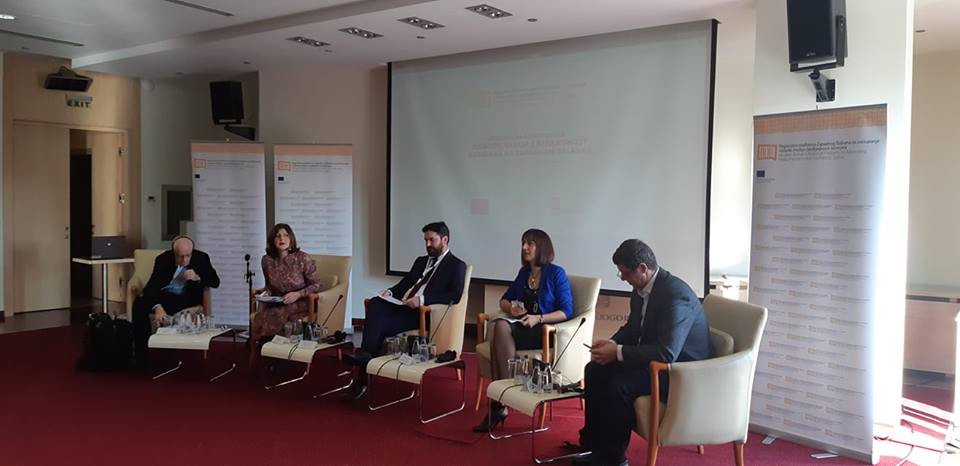
PODGORICA 23.11.2018. – The situation regarding the safety of journalists in the Western Balkans is still very worrying, said the president of the European Federation of Journalists (EFJ) Mogens Blicher Bjerregard on the second day of the conference “Freedom of the Media and Safety of Journalists in the Western Balkans”, held in Podgorica.
Bjerregard said that the media freedom situation in the region is bad and that it is therefore very good that journalists’ associations and trade unions in the Western Balkans have joined in defending media freedoms in the region.
Representative of the Council of Europe, Lejla Dervišagić, said that prevention, protection, launching of investigations and promotion of all this are the key recommendations of the Council of Europe to member states for strengthening the safety of journalists.
Dervišagić said that the Council of Europe, through its platform, has been recording cases of attacks on journalists in Europe for several years and analyzes the possibilities for their resolution.
“The goal is for Member States to change their current situation,” Dervisagic said. She also said that 122 cases of attacks on journalists in Europe and, unfortunately, 4 murders, were recorded over the Council of Europe platform this year.
The president of the Trade Union of Media of Montenegro, Marijana Camovic, said that the Government of Montenegro ignored the SE platform and that it needs up to 10 months to respond to the Council of Europe for questions about attacks on journalists.
“The Government has even asked that three cases of assaults on journalists in Montenegro should be removed from the SE platform, although they have not been judicially finished”, Camovic said. She also assessed that it was a great disgrace that the Montenegrin police and the prosecution allowed the time-barring of the attack on journalist Mladen Stojovic.
A member of the Montenegrin Commission for Investigating the Investigation of Attacks on Journalists Dalibor Tomovic said that at the beginning of next year will be time-barred in 3 cases of attack on the editorial staff and the assets of the newspaper Vijesti. Tomovic said that the Commission has so far adopted 5 reports of attacks that have been searched.
“The reports, with recommendations, were adopted by the Government and we are now waiting to see if these recommendations will be applied,” Tomovic said.
The main state prosecutor in Podgorica, Ljiljana Klikovac, denied that in some cases attacks on journalists would soon be represented by the statute of limitations, referring to the prosecution’s data. She also said that joint police, prosecutorial and journalists’ seminars would help improve the safety of journalists and speed up the attack.
Naser Selmani, president of the Association of Journalists of Macedonia, said that last year, 18 attacks on journalists were recorded in his country, and these 6 and that the situation is somewhat better than the change of power.
“What is worrying is the policy of impunity because most of the cases from the previous period have not been resolved,” says Selmani.
He also claims that the police in Macedonia hide attackers against journalists in some cases.
The conference in Podgorica, in two days, gathered around 100 participants, and it was organized by the Regional Platform of the Western Balkans for advocating the freedom of the media and the safety of journalists, whose memder is also Trade Union of Media of Montenegro.